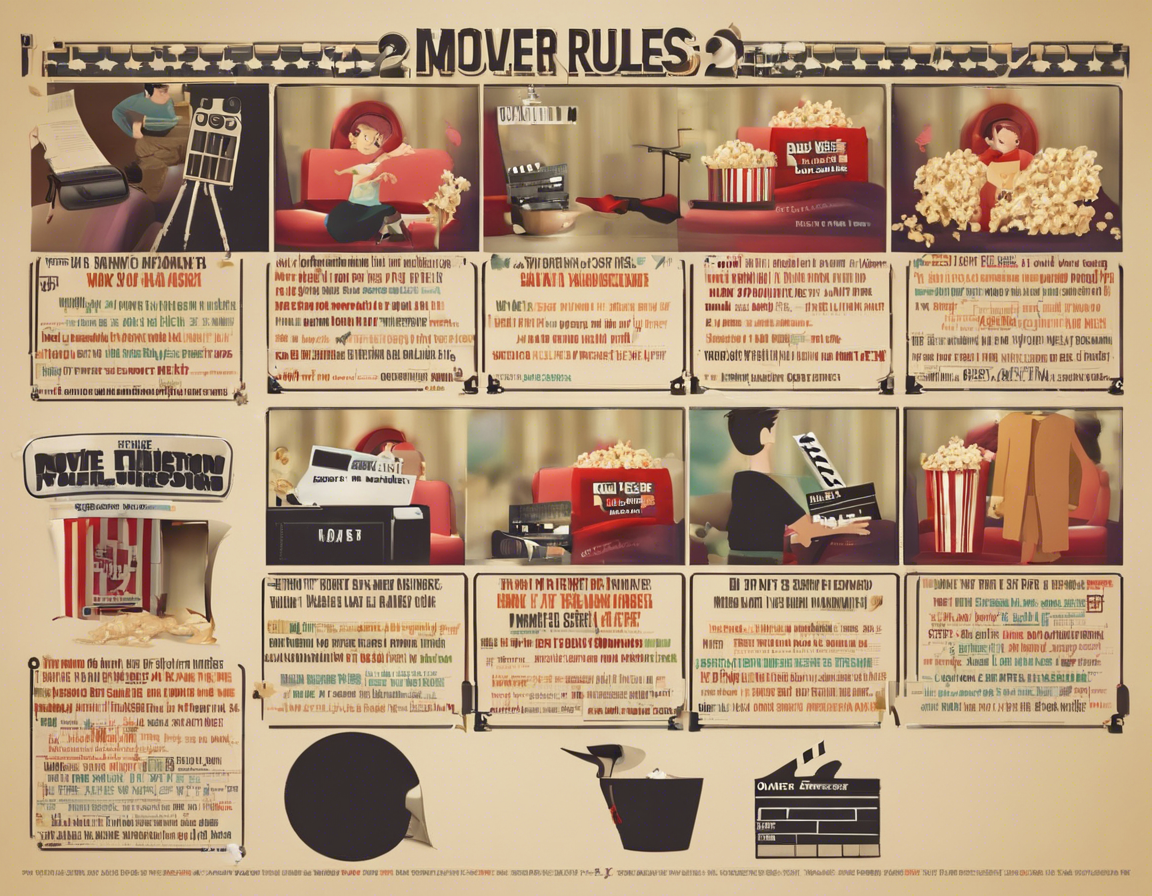As a film lover, appreciating and understanding movies involves not only enjoying the visual and storytelling aspects but also recognizing the artistry and craftsmanship that goes into creating a film. Whether you are a casual moviegoer or a dedicated cinephile, there are certain rules and principles that can enhance your movie-watching experience and deepen your appreciation for the medium. In this article, we will explore five essential movie rules that every film lover should know.
The Rule of Three-Act Structure
One of the most fundamental principles of storytelling in film is the three-act structure. This concept dates back to ancient Greece and has been used in countless films to create a cohesive and engaging narrative. The three acts are typically defined as follows:
- Act 1 (Setup): Introduces the characters, setting, and central conflict.
- Act 2 (Confrontation): Develops the conflict and raises the stakes for the characters.
- Act 3 (Resolution): Resolves the conflict and provides closure for the story.
Understanding the three-act structure can help you analyze and appreciate how filmmakers structure their stories and create tension and resolution.
The Importance of Character Development
Character development is crucial to creating compelling and relatable stories in film. Strong characters undergo growth and change throughout the course of the story, making them more engaging for the audience. Pay attention to how characters evolve, how their motivations drive the plot, and how they interact with other characters. Well-developed characters can elevate a film from being merely entertaining to truly memorable.
The Power of Visual Storytelling
Film is a visual medium, and visual storytelling plays a significant role in how stories are conveyed on screen. From cinematography to production design to editing, each visual element contributes to the overall storytelling experience. Pay attention to framing, lighting, color palettes, and camera movement, as these choices can enhance the mood, tone, and themes of a film. A keen eye for visual storytelling can deepen your understanding and appreciation of a film’s artistic merit.
Understanding Genre Conventions
Different genres of film have their own conventions and tropes that help define and distinguish them. Whether it’s the suspenseful atmosphere of a thriller, the witty dialogue of a comedy, or the epic scope of a fantasy film, understanding genre conventions can help you appreciate how filmmakers play with and subvert audience expectations. Familiarize yourself with the characteristics of various genres to better understand the creative choices behind different films.
The Art of Film Criticism
Lastly, being a discerning film lover involves developing your critical thinking skills when it comes to analyzing and evaluating movies. Film criticism is more than just giving a thumbs up or thumbs down; it involves thoughtful reflection on a film’s themes, performances, direction, and overall impact. Reading reviews from professional critics and engaging in discussions with other film enthusiasts can help you hone your analytical abilities and deepen your understanding of cinema as an art form.
Frequently Asked Questions (FAQs)
- What makes a movie “good”?
-
A good movie is one that effectively engages the audience, tells a compelling story, features well-developed characters, and showcases strong craftsmanship in aspects such as acting, direction, and cinematography.
-
Why is the three-act structure so common in films?
-
The three-act structure provides a clear and effective framework for storytelling, allowing for the introduction of characters and conflicts, the development of tension, and the resolution of the narrative.
-
How can I improve my understanding of cinematography?
-
Watching films with a focus on visual elements, reading books on cinematography, and analyzing the work of renowned cinematographers can enhance your understanding of this aspect of filmmaking.
-
What role does sound design play in movies?
-
Sound design is crucial in creating atmosphere, enhancing emotions, and immersing the audience in the world of the film. Paying attention to sound effects, dialogue, and music can enrich your movie-watching experience.
-
Why is it important to study film history?
-
Studying film history provides valuable context for understanding how cinema has evolved over time, the influence of different movements and filmmakers, and the cultural significance of certain films.
-
How can I become a better film critic?
- Developing your critical thinking skills, expanding your knowledge of film theory and history, and actively engaging in discussions and analyses of films can help you become a more insightful and articulate film critic.
In conclusion, by familiarizing yourself with these five essential movie rules and engaging with films on a deeper level, you can enhance your appreciation for the art of cinema and enrich your movie-watching experience. Remember to approach each film with a curious and critical eye, and you’ll discover new layers of meaning and enjoyment in this dynamic and diverse medium.
